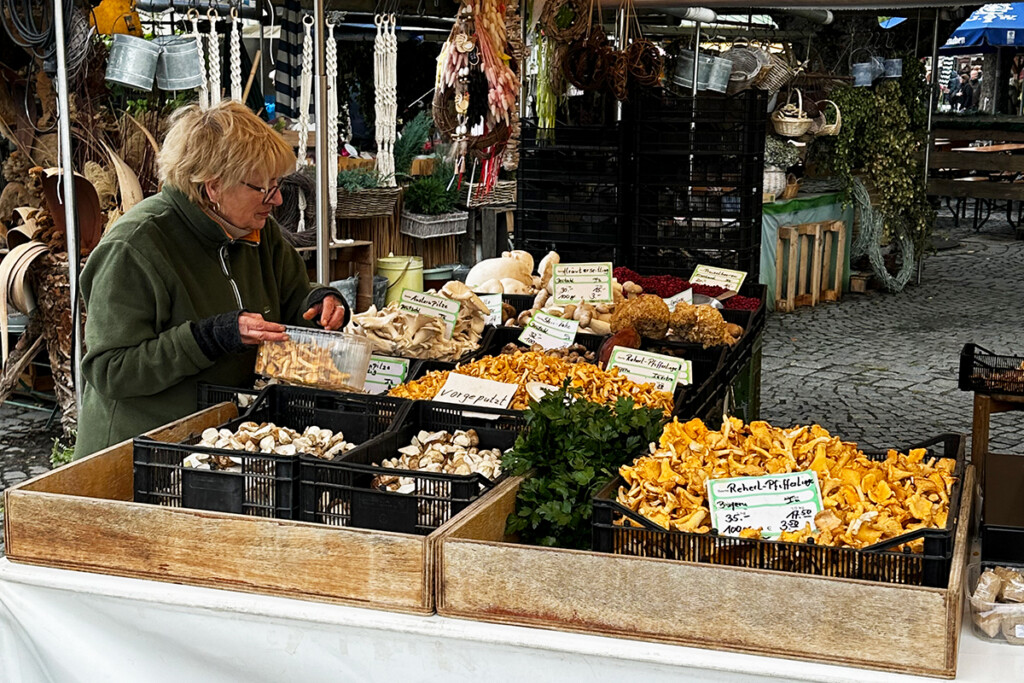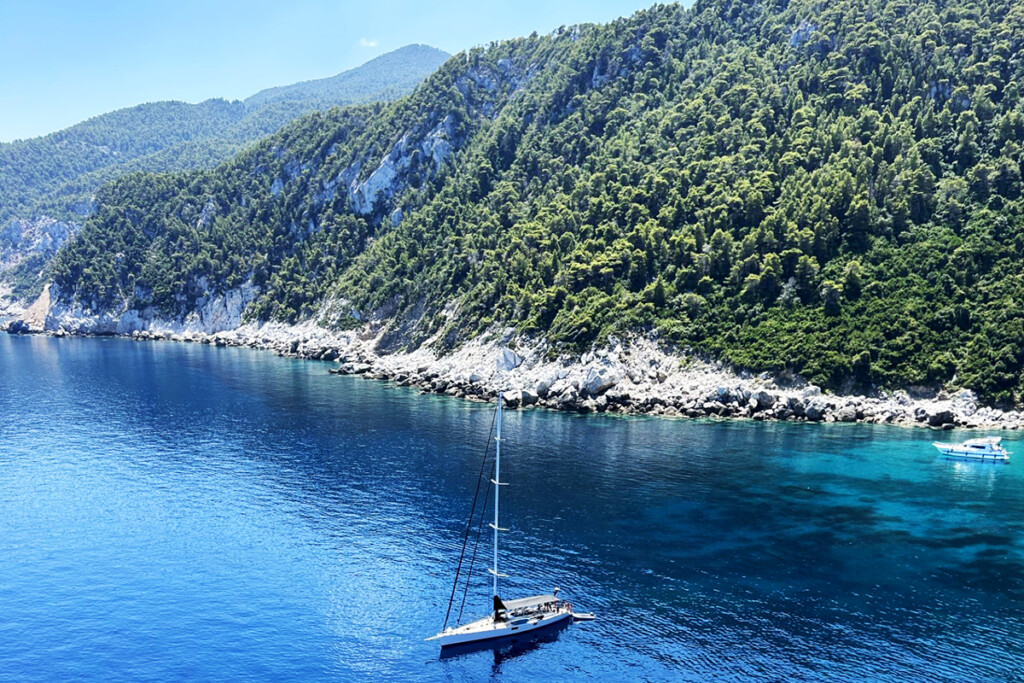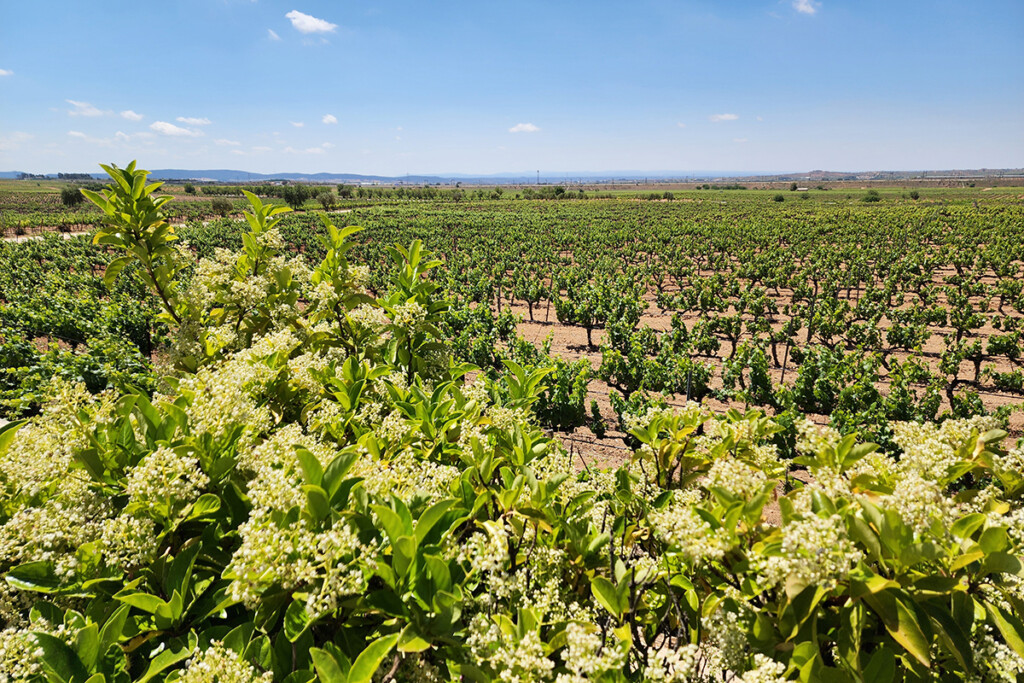
Takeaways
- Study abroad programs at CAES will expand in 2026 with four new faculty-led programs. The early deadline to apply is Oct. 1.
- Students can study food science, health, culture and sustainability abroad through immersive programs in Europe.
- Destinations include Germany, Greece, Scotland and the Mediterranean, offering hands-on learning in global agriculture.
Students, pack your bags: Four new faculty-led programs take off in May 2026.
These programs, offered by the University of Georgia College of Agricultural and Environmental Sciences, provide the opportunity to explore, discover and learn within a new culture and international context.
“At CAES, we believe that hands-on, immersive experiences are crucial to a student’s personal and professional development, and we strive to offer these rich experiences in as many settings as possible, both domestically and internationally,” said Caroline Hinton, CAES director of experiential learning.
“I’m excited that CAES has the opportunity to add these new programs to an existing portfolio of incredible study abroad offerings in agricultural and environmental sciences, and I have no doubt that students will be transformed by what they experience abroad,” she added.
These new study abroad opportunities are part of more than a dozen faculty-led programs offered by CAES.
The early deadline for the new programs is Oct. 1. After the early deadline, the college will move to a rolling admissions process with closing dates pending the number of remaining spots.

Guten Appetit: Study of the Food Industries in Germany and Italy
Faculty advisor: Ron Pegg, Josiah Meigs Distinguished Teaching Professor in the CAES Department of Food Science and Technology (FST)
Dates: May 9-24, 2026
Program description: Guten Appetit will provide students with a unique opportunity to observe, experience and learn how traditional Germanic and Italian food commodities are processed into finished products, ultimately contributing to traditions and culture in the countries.
Germanic and Italian food production will be examined in depth and will focus on meat and meat products, brewing distilleries, wineries, bakeries, and the coffee and dairy industries. Students participating in this program will experience profound sociocultural interactions that will help them to better understand cultures in the U.S. as well as the cultures of a Germanic and Italian-speaking country, helping them become better global citizens.
The tour will explore Bavaria, the largest state in Germany, and its diverse food industry, and Bolzano, Italy, helping students appreciate diverse global agricultural practices and reflect on how they might be applied to commodities of interest in Georgia.
“Guten Appetit: Food Industries in Germany and Italy is not just about seeing castles and trying delicious food, but rather to experience German and Italian culture and to learn about the rich history of food processing and why it exists,” Pegg said. “As a faculty member, I am looking forward to providing experiential learning opportunities for students on the historical and cultural practices surrounding German foods and beverages such as the Reinheitsgebot, or the German Beer Purity Law.”

Greek Food Production, Diet and Wellness
Faculty advisors: Laurel Dunn, associate professor and UGA Cooperative Extension coordinator in FST, and Faith Critzer, professor and interim department head in FST
Dates: May 16-30, 2026
Program description: Welcome to Greece, where food and wine have played an integral role in history, culture, world trade and health. This experiential learning opportunity will focus on two primary topic areas using class time and guided tours of food facilities, wellness-focused activities and cultural exploration.
Greek food production will be examined in depth, with a focus on the dairy, spirits, wine, tea, pistachios, olive oil and honey industries. Instruction will accompany immersive facility tours to give students a behind-the-scenes look at food production. Principles of food science covered will include microbiology, food chemistry and sensory science as students examine and learn about different commodities.
Lessons will also focus on the impact the Mediterranean diet and culture have on the region, including health and longevity. This will involve learning about cuisine through hands-on cooking experiences, Greek dance and its impact on culture, and health through movement, including a hike around Mt. Olympus. Students will engage in discussion about the world’s five blue zones — regions that boast the healthiest and longest-lived residents in the world — one of which is in Greece.
“What excites me the most is that we have the opportunity to learn about Greek history and culture through its food and the people who make it,” Dunn said. “We’ll ride, walk and sail around the country as we sample the foods and wines that are interwoven throughout Greek culture and life.”

Scotland: Animal Health Research and Development
Faculty advisors: Jessica Fife, outreach coordinator at the CAES Department of Poultry Science, and Laura Ellestad, associate professor and director of graduate studies for poultry science
Dates: May 17-30, 2026
Program description: Scotland — or Alba, the country’s Scottish Gaelic name — is a land of breathtaking natural landscapes, vibrant cities and quaint villages, weaving a rich cultural tapestry. From the majestic highlands and islands that share the same mountain range as our very own Appalachians to some of the world’s oldest and most prominent universities, Scotland’s proud history and diverse heritage offer an unparalleled immersive experience.
The experience will allow students to explore Scotland with a focus on research and development in animal health, both in the public and higher education sectors. This study abroad program will collaborate with prominent department supporters and key alumni employers, Scotland’s colleges of veterinary medicine, and world-renowned researchers in the realms of animal health, genetics and welfare across a diverse range of species.
“This program offers an exceptional opportunity for students considering professional or graduate studies in fields related to animal — and even human — health,” Fife said. “The experience provides a deep exploration of the United Kingdom’s and Scotland’s approaches to One Health, examining the roles of government policy, private sector involvement and higher education research initiatives while highlighting both commonalities and differences across these systems in the United States.”

Exploring Mediterranean Agriculture Systems: A Journey through Food, Culture and Sustainability
Faculty advisors: Rhuanito Ferrarezi, associate professor in the CAES Department of Horticulture, and Leonardo Lombardini, horticulture department head and professor
Dates: May 15-31, 2026
Program description: This Mediterranean study abroad program explores the principles and practices of sustainable food production systems in the Mediterranean, specifically in Valencia, Spain.
The opportunity will provide an in-depth overview of agricultural systems that balance innovation and tradition, enhancing crop production, sustainability and competitiveness in global markets. Students will learn about diverse topics, including rice, tomato, citrus, wine, olive oil, meat, dairy and aquaculture production systems; environmental management; technological applications such as drones and integrated production systems; quality standards; and business strategies for local and global markets.
The program will include lectures, daily field tours to neighboring cities and interactive activities highlighting the Mediterranean region’s unique agricultural practices. Students will engage in site visits to production areas, processing centers and markets, providing practical insights into the challenges and opportunities of sustainable agriculture.
“What excites me most about this program is its unique ability to bridge theory and practice in a profoundly transformative way, fostering true global citizenship and serving as a catalyst for interdisciplinary exploration with people from all over the world,” Ferrarezi said. “And, of course, it is the perfect excuse to prepare ourselves for an authentic Spanish siesta after trying several delicacies at the numerous cities around Valencia that we will visit during this program.”



